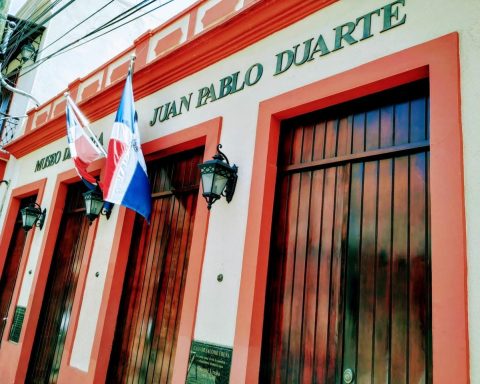HOLY SUNDAY. A declaration of the The Spanish Embassy in Haiti affirms that the arrival of the Spanish to the American continent occurred through Haiti, contradicting a historical tradition of more than 500 years that points to the Dominican Republic as the place where the Spanish established their first settlement in the New World.
This position disclosed by the Spanish embassy calls into question a widely accepted historical fact and adds a new chapter to the historical differences between Dominicans and Haitians.
“On December 5, 1492, Spain reached the coasts of Haiti for the first time, on the island later called Hispaniola. On the northern coast of Haiti, the first settlement in America was established: Fort Navidad, built with the remains of the ship Santa María. The aforementioned embassy disclosed on its social networks to refer to the anniversary.
This approach contrasts with the historical consensus that indicates that Christopher Columbus arrived in 1492 on the island of Hispaniola, establishing his first settlement in the current Dominican Republic, specifically in the area where La Isabela was later founded, considered the first European settlement in America. .
In contrast, the Spanish embassy in the Dominican Republic has not referred to the anniversary of which today is celebrating 522 years.
A blow to historical tradition
This position of the Spanish Embassy in Haiti contradicts the historical narrative that has maintained that the Dominican Republic, as the eastern part of Hispaniola, was the epicenter of Spanish colonization. In 1992, during the celebration of the Fifth Centenary of the Discovery of America, the Dominican Republic was the center of the commemorative events, with the presence of international figures and the inauguration of monuments such as the Columbus Lighthouse, in Santo Domingo.
In contrast, Haiti has not been historically recognized as the place where the first Spanish settlement was established, although it shares the territory of Hispaniola, the island where Columbus arrived on his first voyage. This difference in the historical narrative highlights the persistent tensions around the identity and prominence of each country in the history of the continent.
What historiography says
Traditional historiography establishes that Christopher Columbus arrived on the island of Hispaniola on December 5, 1492, landing in the current Dominican Republic, where he founded the Christmas Fort. Later, on his second trip, in 1493, La Isabela was established, in the province of Puerto Plata, as the first permanent settlement of the Spanish in America.
Historians also highlight that the western region of the island, what is now Haiti, did not acquire a leading role in the first years of colonization. In fact, that part of the island came under French control starting in the 17th century, when the political fragmentation of Hispaniola began.
Historical tension in the current context
This statement adds to a long list of historical and cultural differences between the Dominican Republic and Haiti. While Dominicans have defended their role as the cradle of the New World, Haiti has sought to highlight its role as the first independent nation in Latin America and the Caribbean after the Haitian Revolution.
In recent years, these differences have worsened amid debates on issues such as migration, border sovereignty and the management of common resources. For many, the position of the Spanish Embassy in Haiti can be seen as an attempt to strengthen bilateral ties with Haiti, but at the expense of delegitimizing the historical role of the Dominican Republic in the arrival of Europeans to America.


















